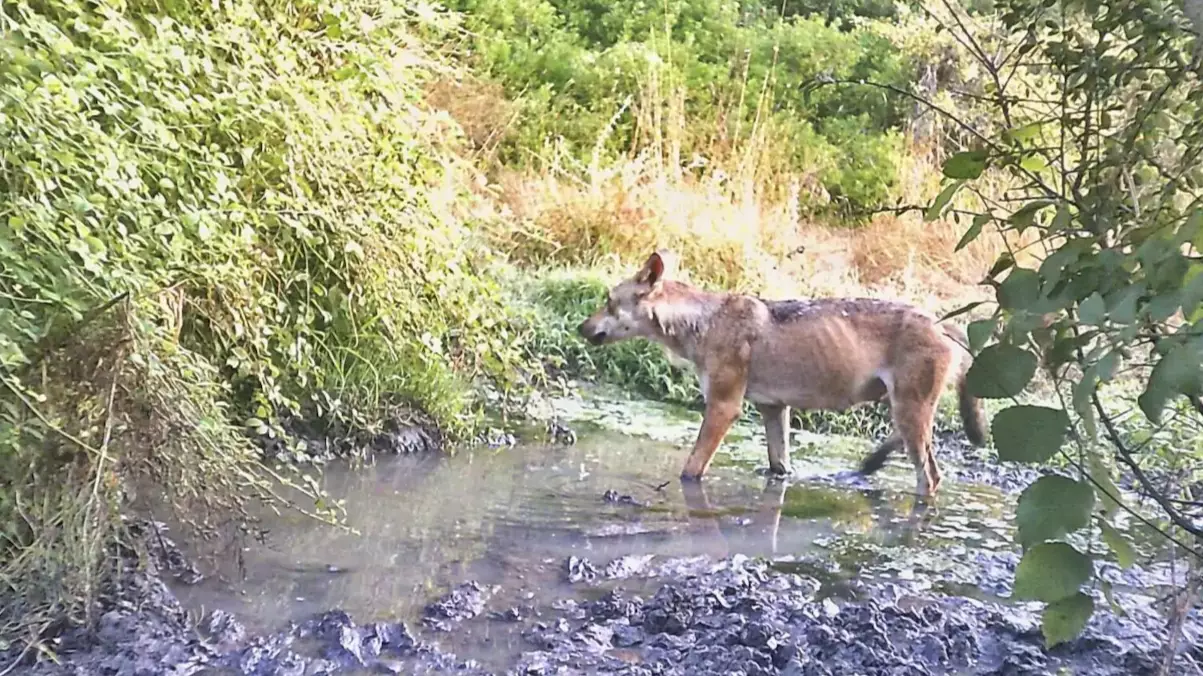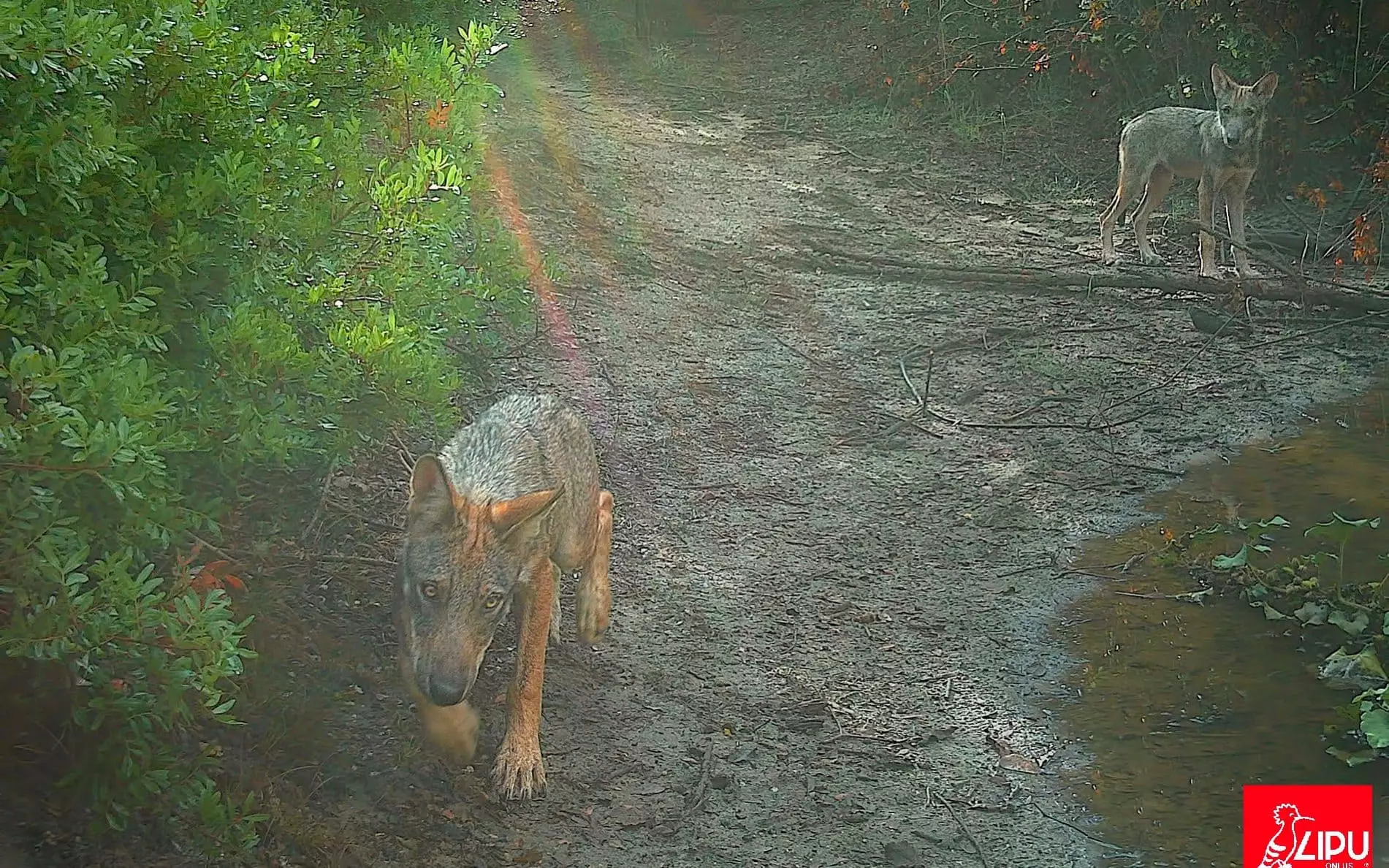
Wolves have been spotted on the outskirts of Rome for the first time in more than a century.
It's a symbolic return for the city, given that the mythical founders of Ancient Rome - two children - Romulus and Remus - are depicted suckling on a wolf.
The predators were picked up by hidden cameras roaming through the Castel di Guido near Leonardo da Vinci airport walking close to a three-lane motorway.

Credit: LIPU
Advert
The cameras caught a pair of mature cubs drinking from a watering hole and wandering through the undergrowth.
"This is the first time in more than 100 years that wolves have been found living near Rome," Alessia De Lorenzis, a professor of natural sciences who is monitoring the wolf pack, told The Telegraph.
"We're very pleased that they are back."
Researchers think there may be two adults and two cubs living on the reserve. The adult male has been nicknamed Romulus.
"We think they probably arrived here from the area around Lake Bracciano, north of Rome, where wolves have always existed, even when the species was pushed towards extinction," said Prof De Lorenzis.

Credit: LIPU
Advert
In 1970 killing wolves was encouraged in Italy which reduced the population to just 100.
A year later the species was given protected status and the population is now estimated as between 1,500 and 2,000.
However, it's thought that these wolves will pose no risk to livestock, as an analysis of their droppings found traces of wild boar, which roam the area in huge numbers, providing plenty of food.
Over here in the UK, conservationists hope to bring wolves back to the country, along with lynx and eventually bears too.
"These animals were all once native to Britain, and the benefits they could bring to the ecology of Britain would be immense," Peter Smith, CEO of the Wildwood Trust told The Telegraph.
"Wolves and lynx will change the behaviour of the deer, causing populations to drop naturally, which helps plants and trees to flourish.
"There are wolves all over Europe and they don't cause problems. When was the last time you heard someone being killed by a wolf?
"Statistics show that you have more chance of being killed in a car going to visit a wolf in captivity than you have of being attacked by one in the wild. And no lynx has ever killed a child or a human.
Advert
"Reintroducing them could allow our children the chance to enjoy our amazing natural heritage which has been wiped out by upland sheep farming."
Source: The Telegraph